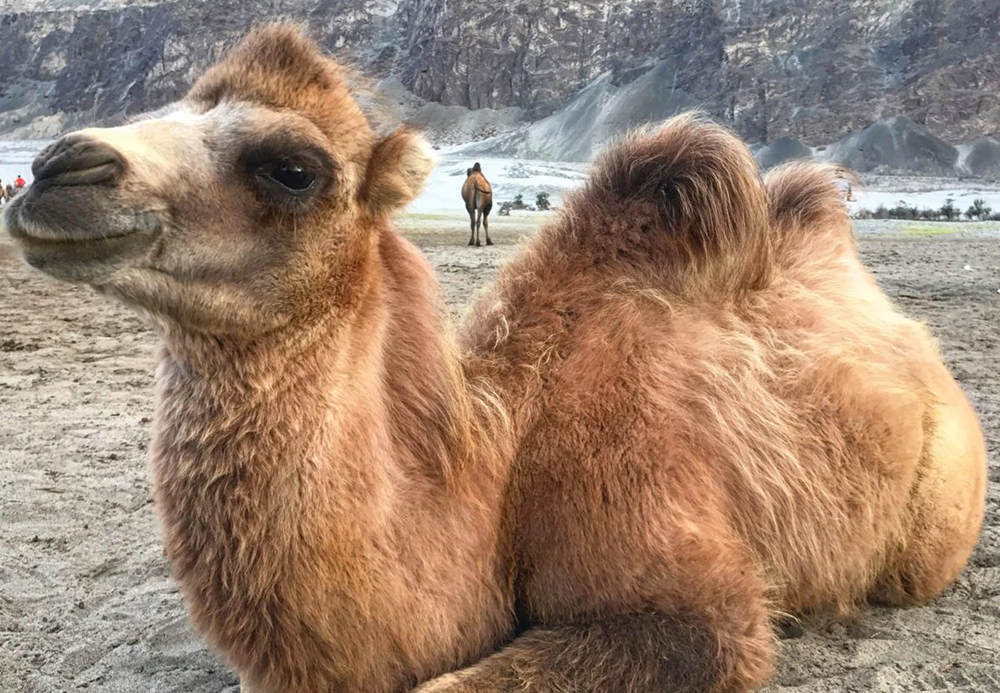
Why a Camel Hair Duvet is an Intelligent Investment
October 22, 2021Time to cuddle up with Camelus and their beautiful range of eco-friendly bedding. The Camelus difference is found in the type of wool they use. Wool, as we know, is one of nature’s best insulating materials and it typically comes from sheep… But have you ever heard of camel wool?
Camel wool has some serious clout. The fibers that are produced by camels are much longer than sheep fibers, which makes them much more durable. The threads of camel wool are also hollow, which means your duvet will be more lightweight and ultra-insulating.
Excellent at regulating temperature, camel wool is also hypoallergenic, naturally moisture-wicking, dust-mite resistant and a really great natural fire retardant. This is a really important point as most synthetic bedding contains harmful fire retardants that can off-gas in the home and contribute to indoor air pollution.
Camelus carries bedroom necessities, including their natural camel wool duvet, a Eucalyptus Lyocell Duvet Cover Set, and an Organic Childrens Duvet.
Camelus’ Materials:
The filling in all of their duvets are made with 100% camel hair and the outer shell is 100% organic quilted cotton. All of their fabrics are OEKO-TEX certified, which means there are no harmful chemicals used. Unlike synthetic materials, when wool reaches its end of life, it can be composted. The brand adds that:
“Living in the fridge climate of the Gobi Desert, the Bactrian camels have adapted for survival, resulting in the long and lustrous hair that is highly sought after. The hair is gathered by hand when the animals moult during the six to eight weeklong moulting season during the Spring.”
If you have an allergic reaction to sheep’s wool, a camel blanket it’s your best option. Due to the high content of lanolin, the material has antibacterial properties. In addition, such wool does not electrify, which means it doesn’t attract dust particles.
The difference between camel down and wool is that the first material is soft and pleasant to the touch, while the other is rough and prickly. Camel down is a camel’s undercoat, which prevents hypothermia. This material is often used to make baby blankets. Wool, on the other hand, is the outer coat that protects the animal from damage. Despite the different tactile sensations, both fibers have good thermal conductivity and hygroscopicity.
Camelus’ Ethical Sourcing:
Wool from camels is really interesting since they live in the desert there are no synthetic pesticides present and do not release any chemicals when manufactured. In contrast, when polyester is manufactured, it releases pollutants into the air. The Camelus team collects the wool for their duvets in Central Asia and the blankets are made in Kazakhstan.
The Bactrian camel is one of the only ones that naturally sheds its hair, which makes it unnecessary to restrain them during the harvesting process. This limits the chances the animals will be injured or experience trauma while sourcing the wool.
Camelus Corporate responsibility:
Camelus is striving to use natural content and harmless technologies application in everything they do. They carefully select their vendors, materials and other resources. Ethics, quality, equality and sustainability are the main factors for their operations and overall management of the company.
All of their camel wool duvet products are packaged in an easy-to-carry reusable bag, which can double as gift packaging





